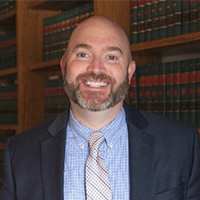Callicoon Center Felony Lawyer, New York
Sponsored Law Firm
-
 x
x

Click For More Info:
-
Cohen & Bernstein, L.L.C.
1360 Clifton Ave #309 Clifton, NJ 07012» view mapCriminal Defense We’re In this Together!
We work hand in hand with our clients to ensure all of your questions are answered and progress through your legal issue is seamless.
800-978-7341
Not enough matches for Callicoon Center Felony lawyer.
Below are all Callicoon Center Criminal lawyers.
Scott A Russell
✓ VERIFIEDCriminal, Wills & Probate, Employee Rights, Banking & Finance
With experience serving the public as an Assistant District Attorney, prosecuting minor traffic infractions and serious felony offenses, as public def... (more)
Bradford John Harris
Tax, Landlord-Tenant, Lawsuit & Dispute, Misdemeanor
Status: In Good Standing Licensed: 13 Years
Cirino M. Bruno
Mediation, Business & Trade, Commodities, Criminal
Status: In Good Standing Licensed: 48 Years
Donna Maria Lasher
Divorce & Family Law, Real Estate, Criminal, Household Mold
Status: In Good Standing Licensed: 51 Years
Elissa Yavne Killian
Criminal, Child Custody, Accident & Injury, Car Accident, Personal Injury
Status: In Good Standing Licensed: 37 Years
 Lindsay Bernstein Clifton, NJ
Lindsay Bernstein Clifton, NJ Practice AreasExpertise
Practice AreasExpertise

